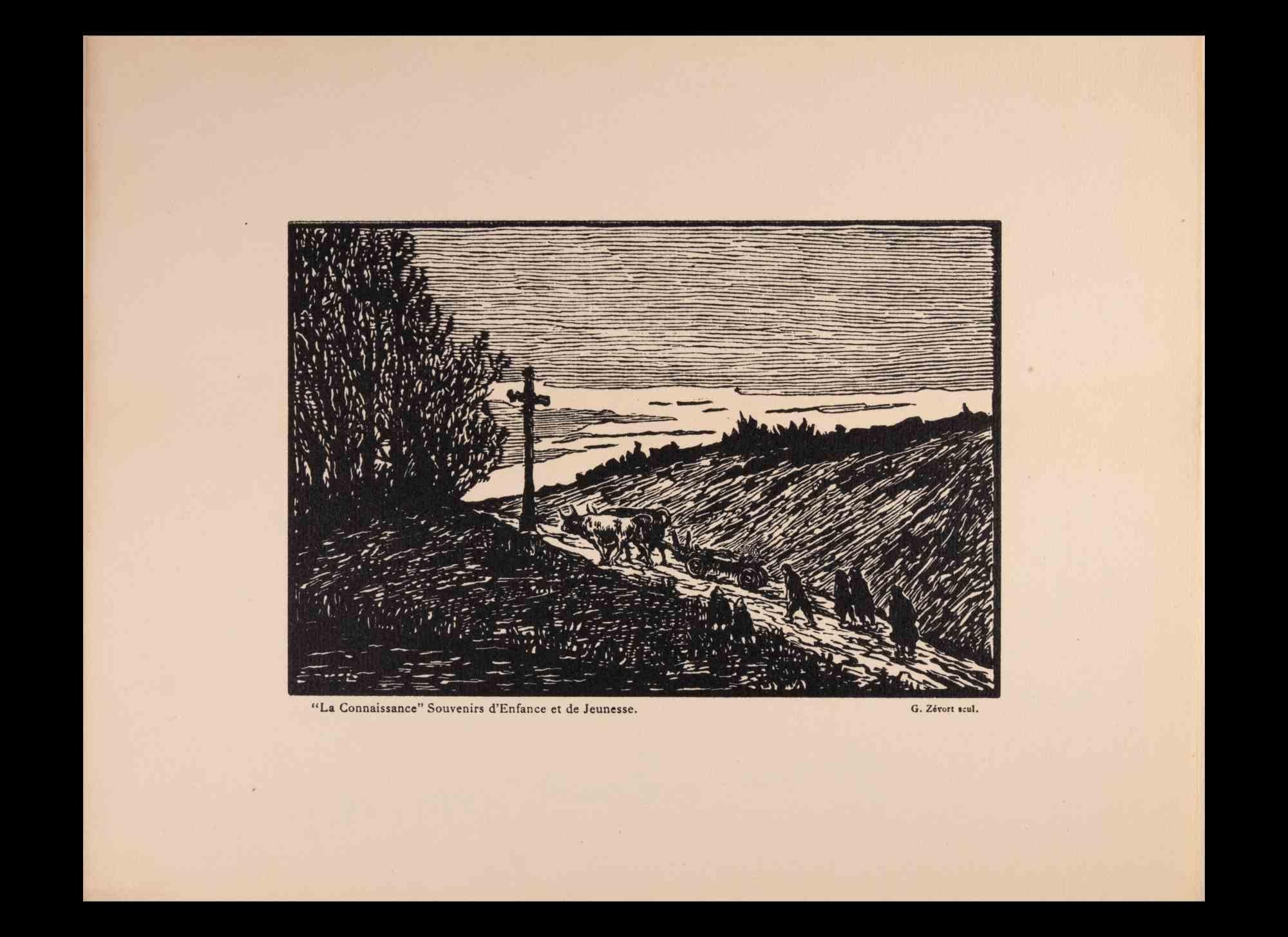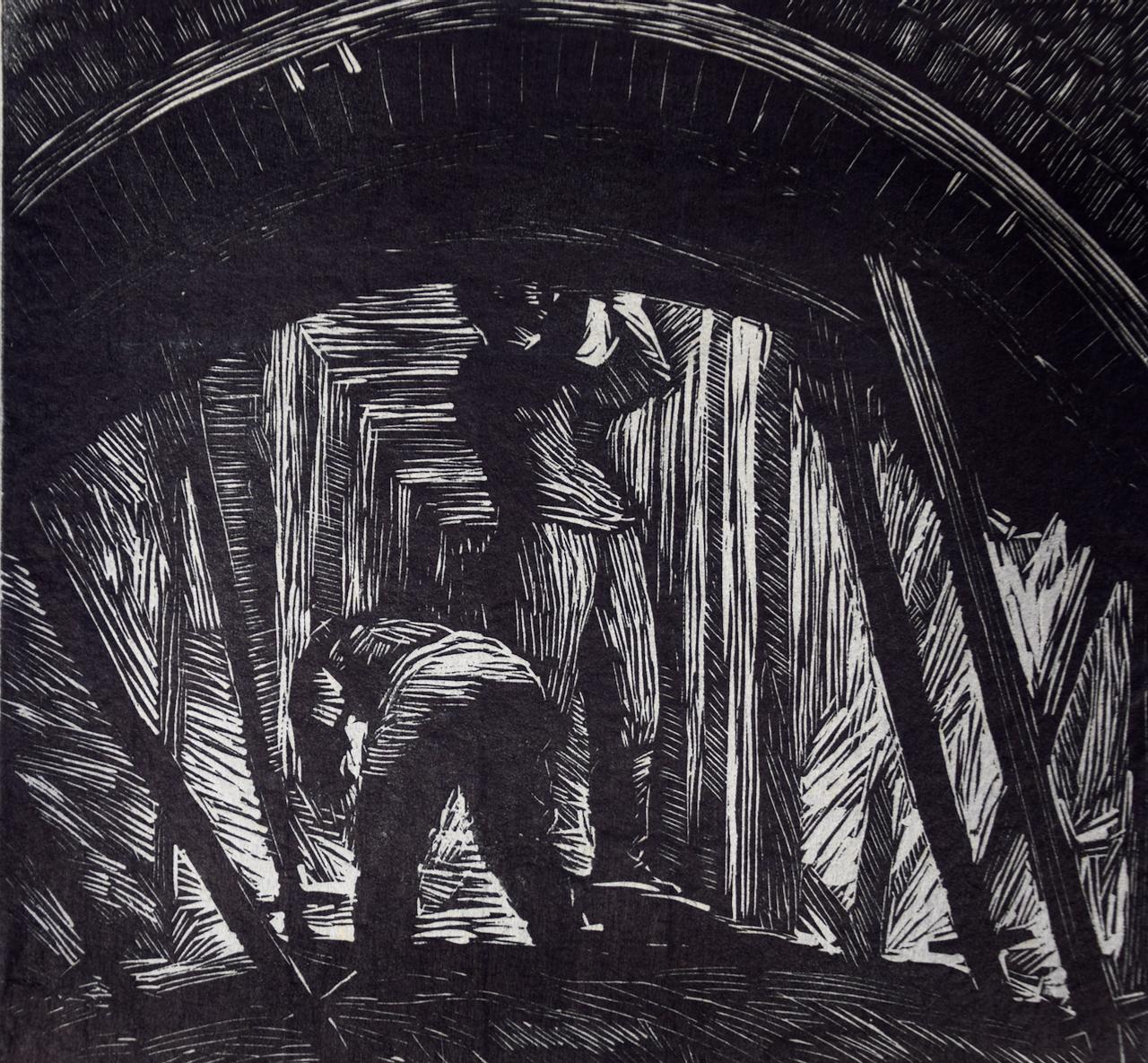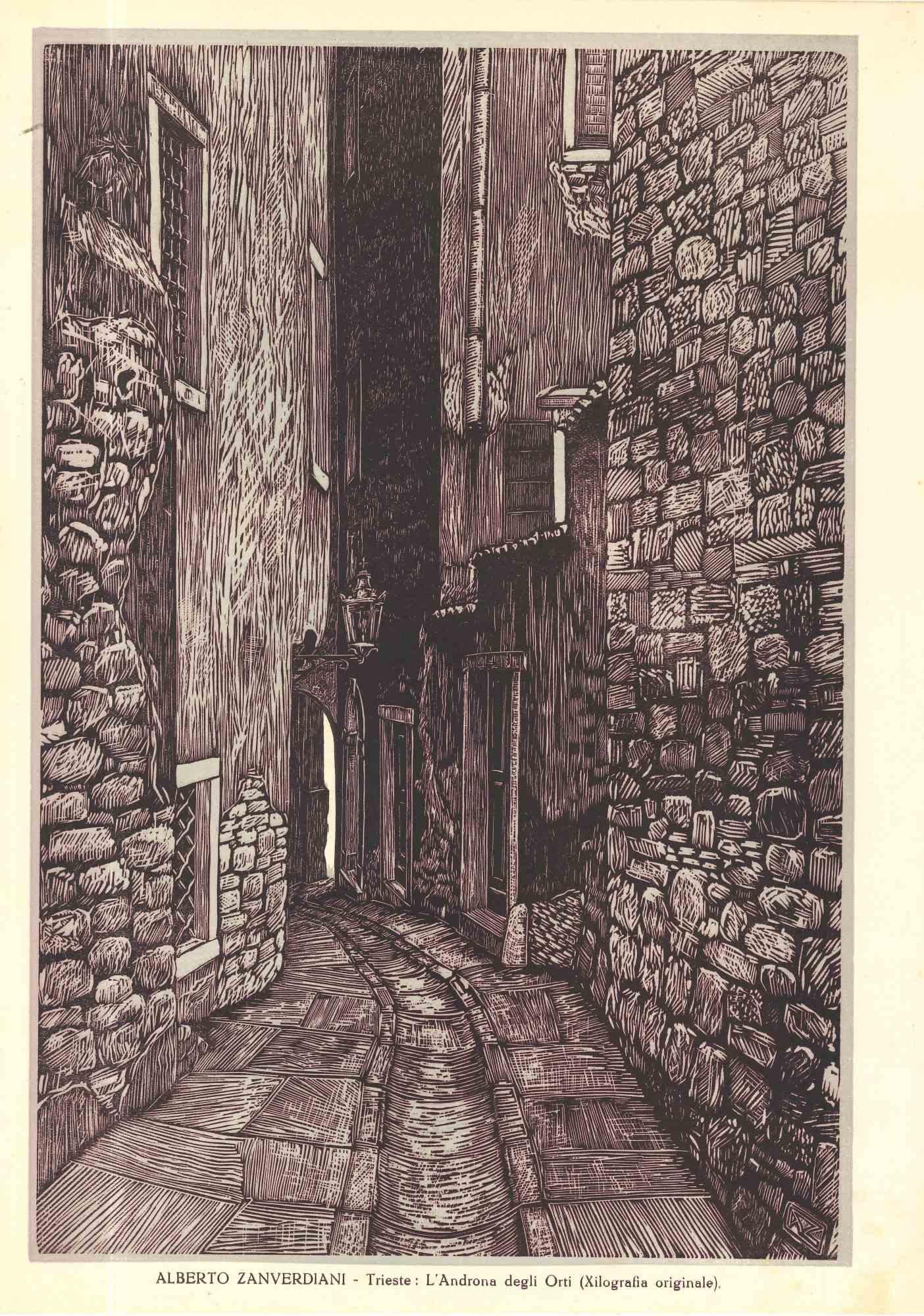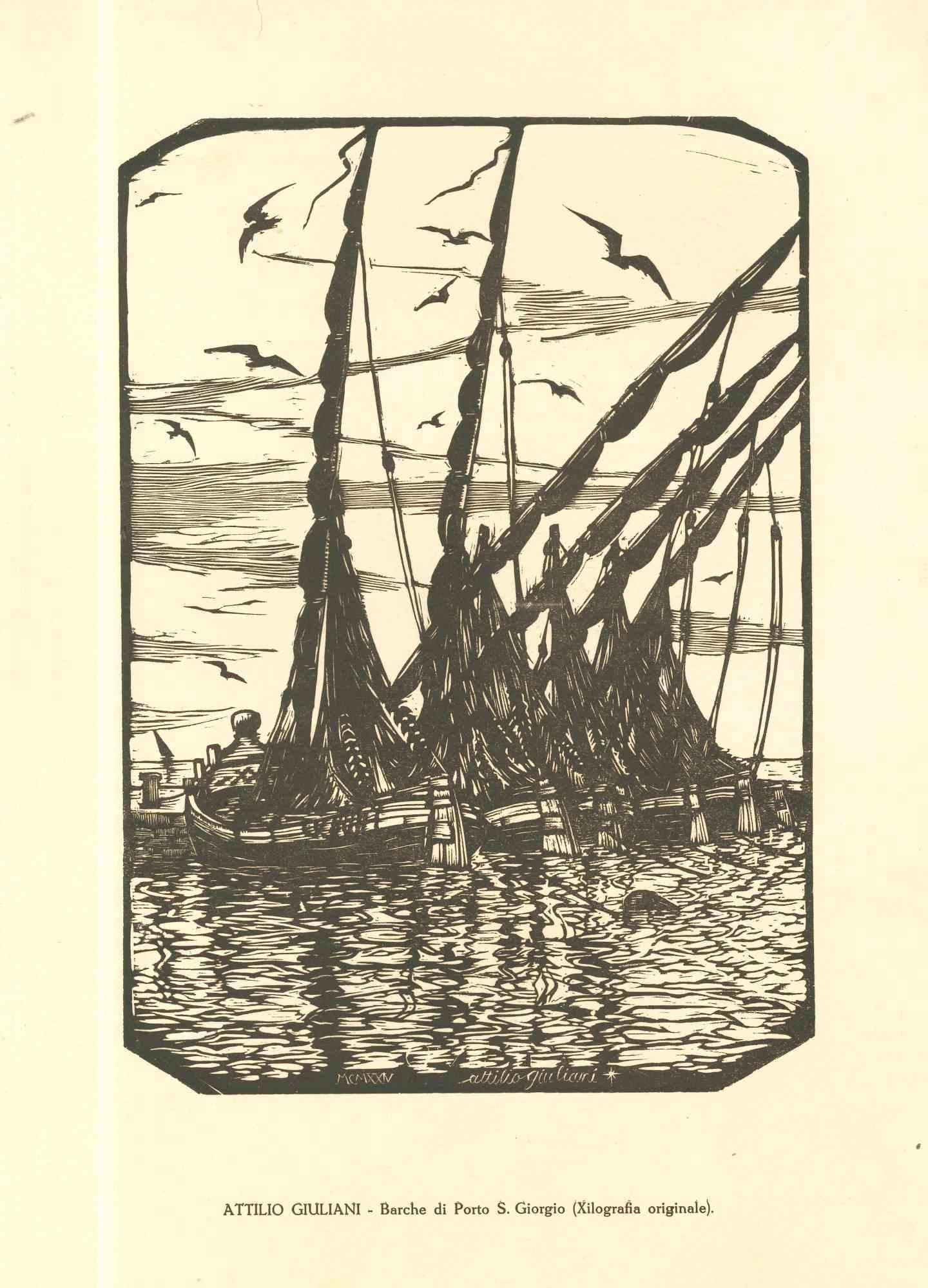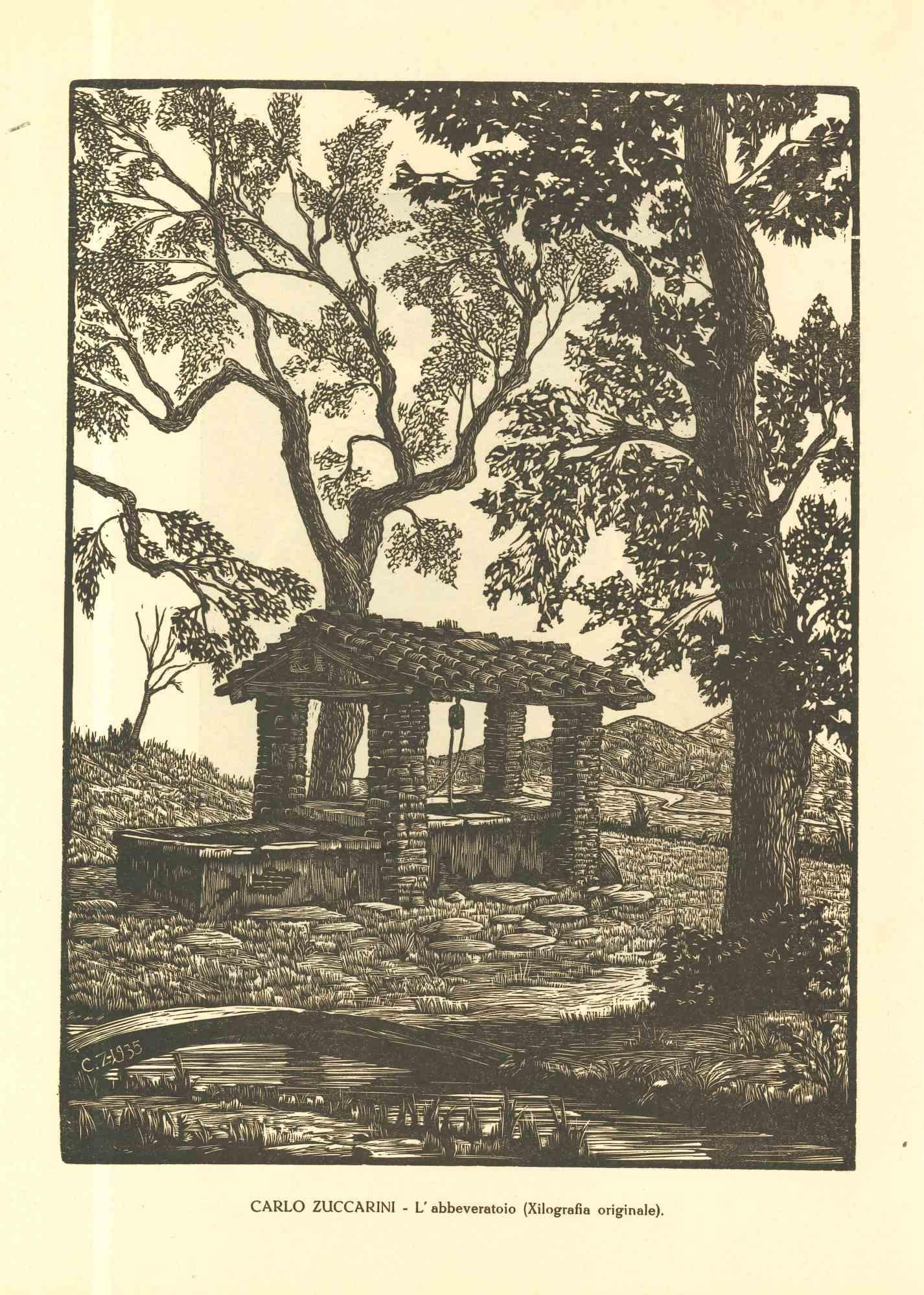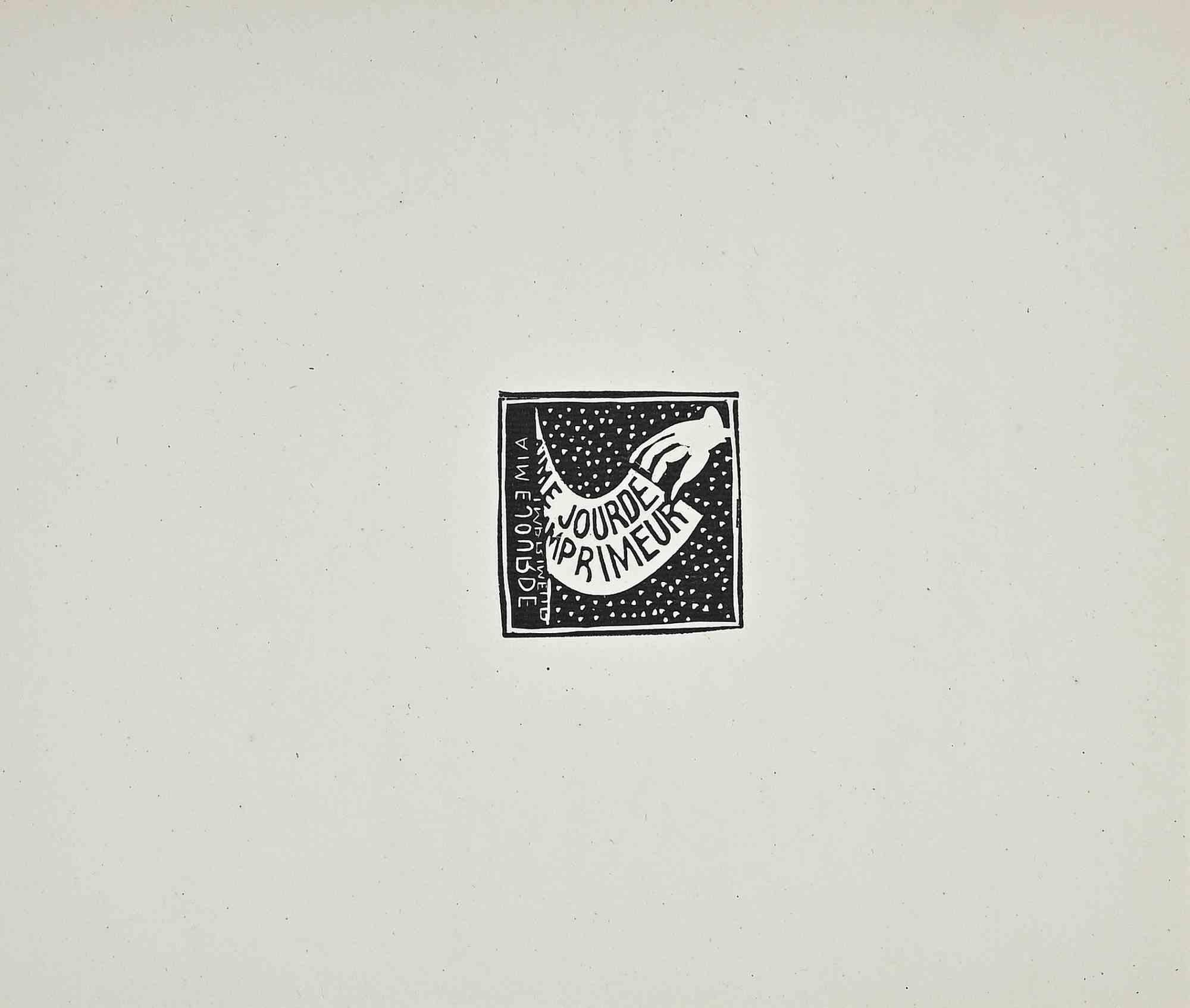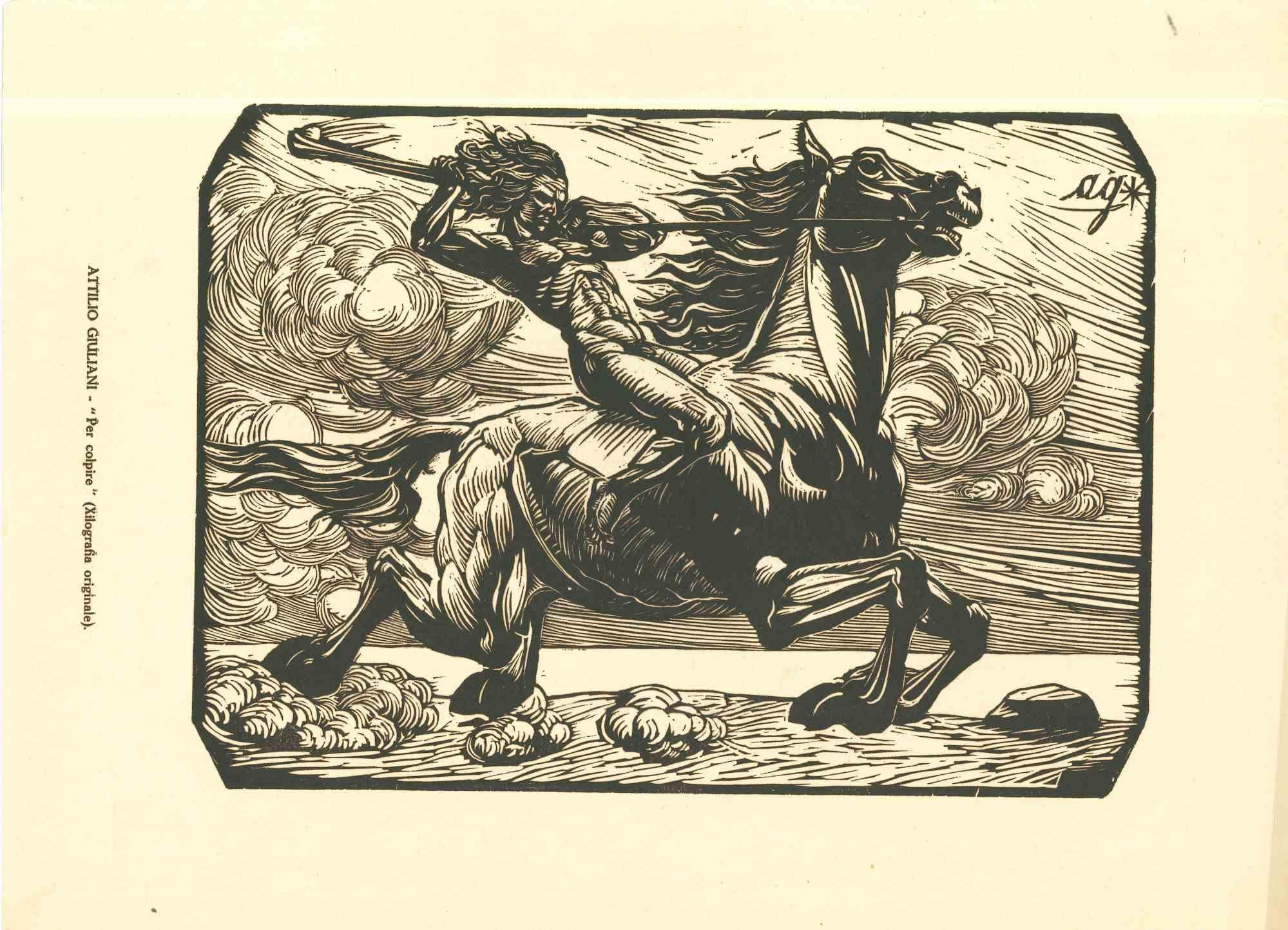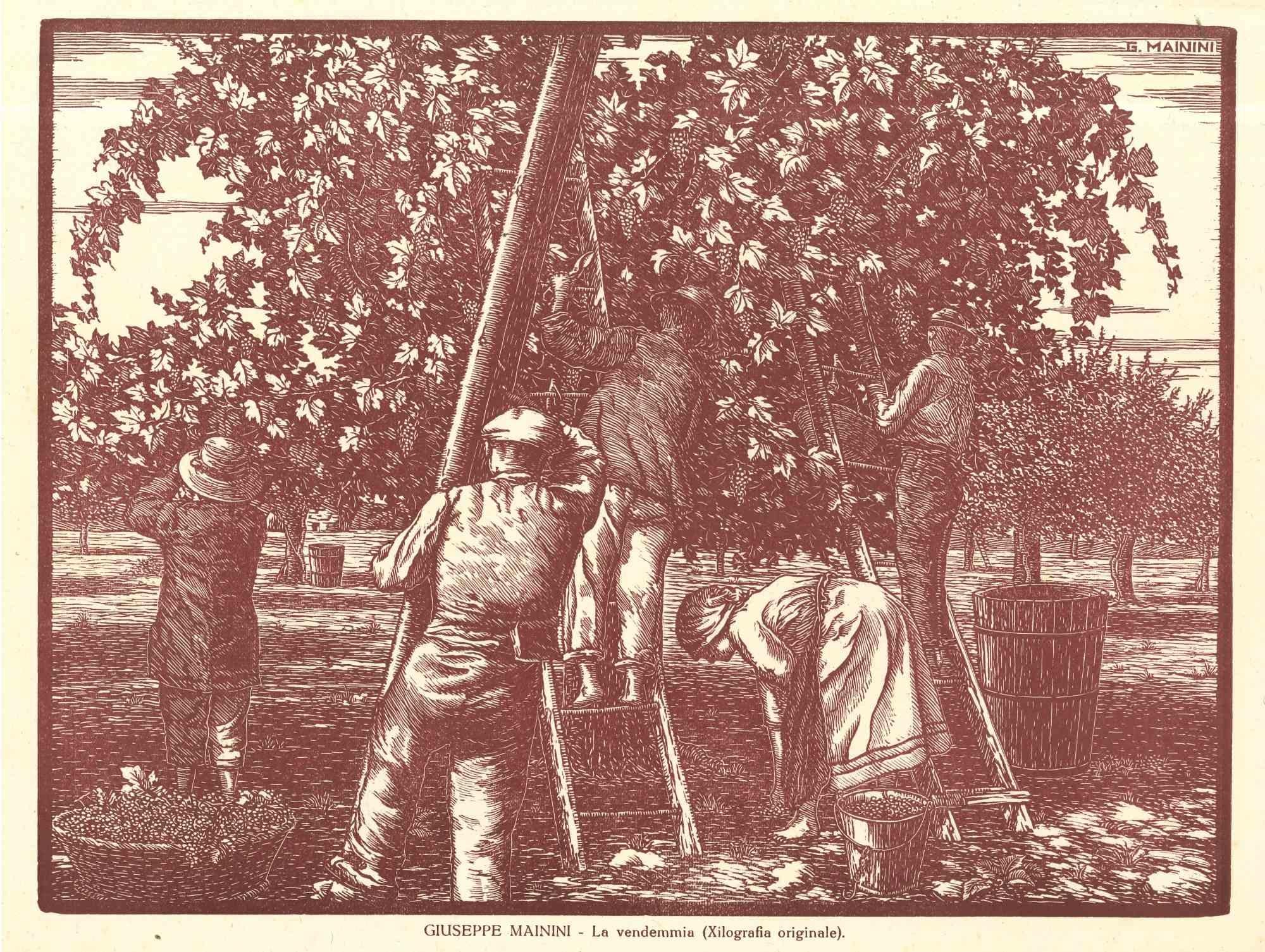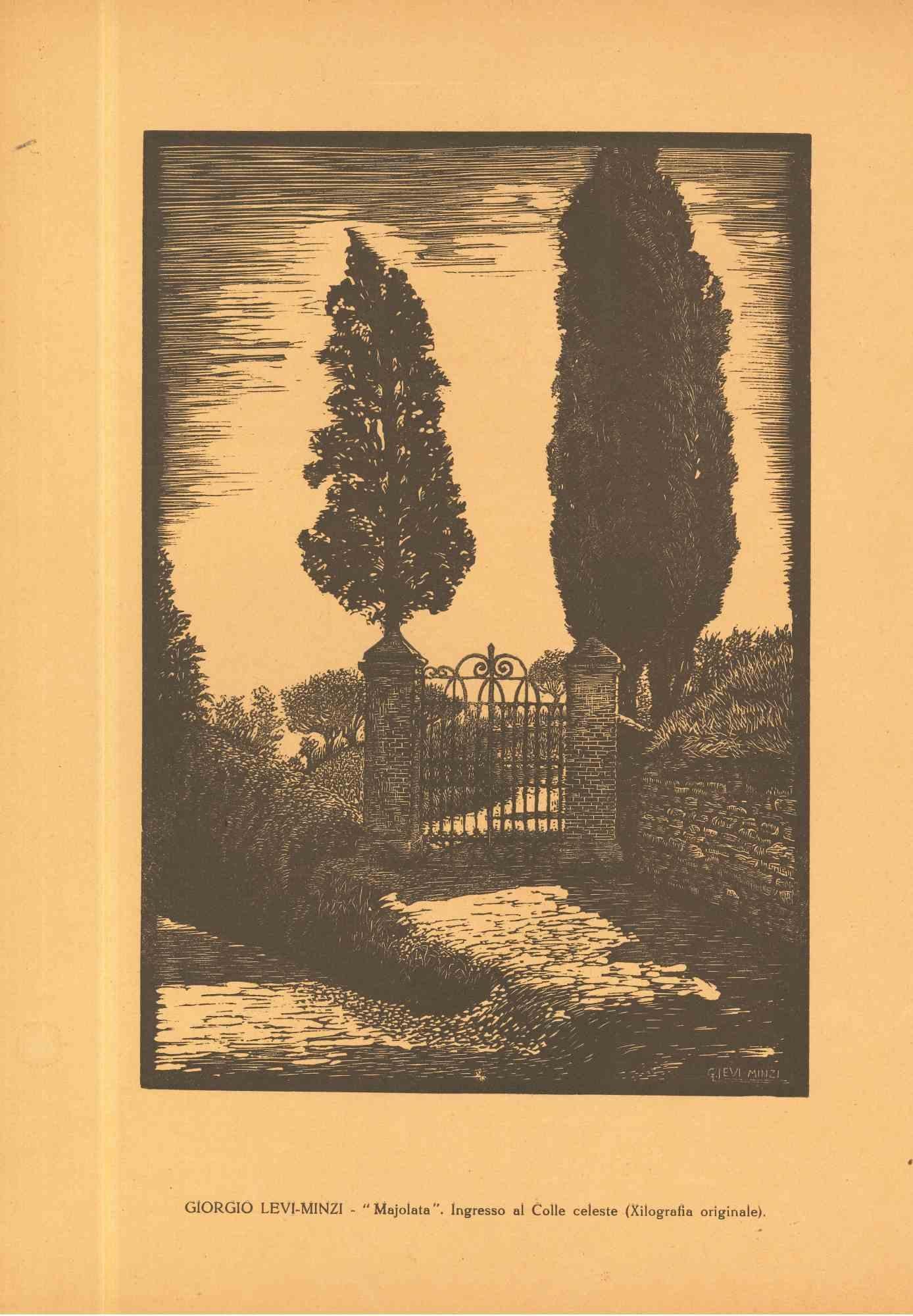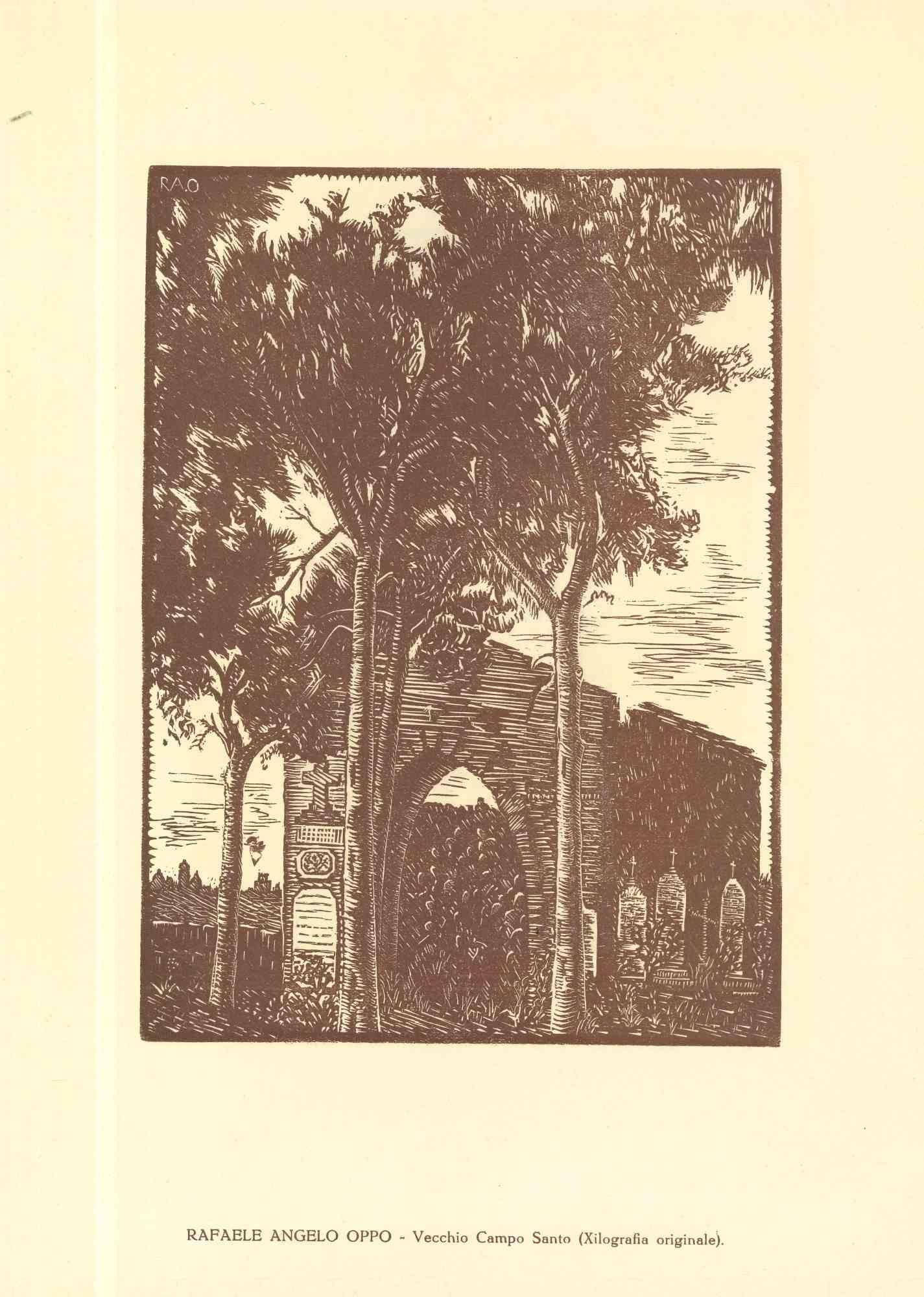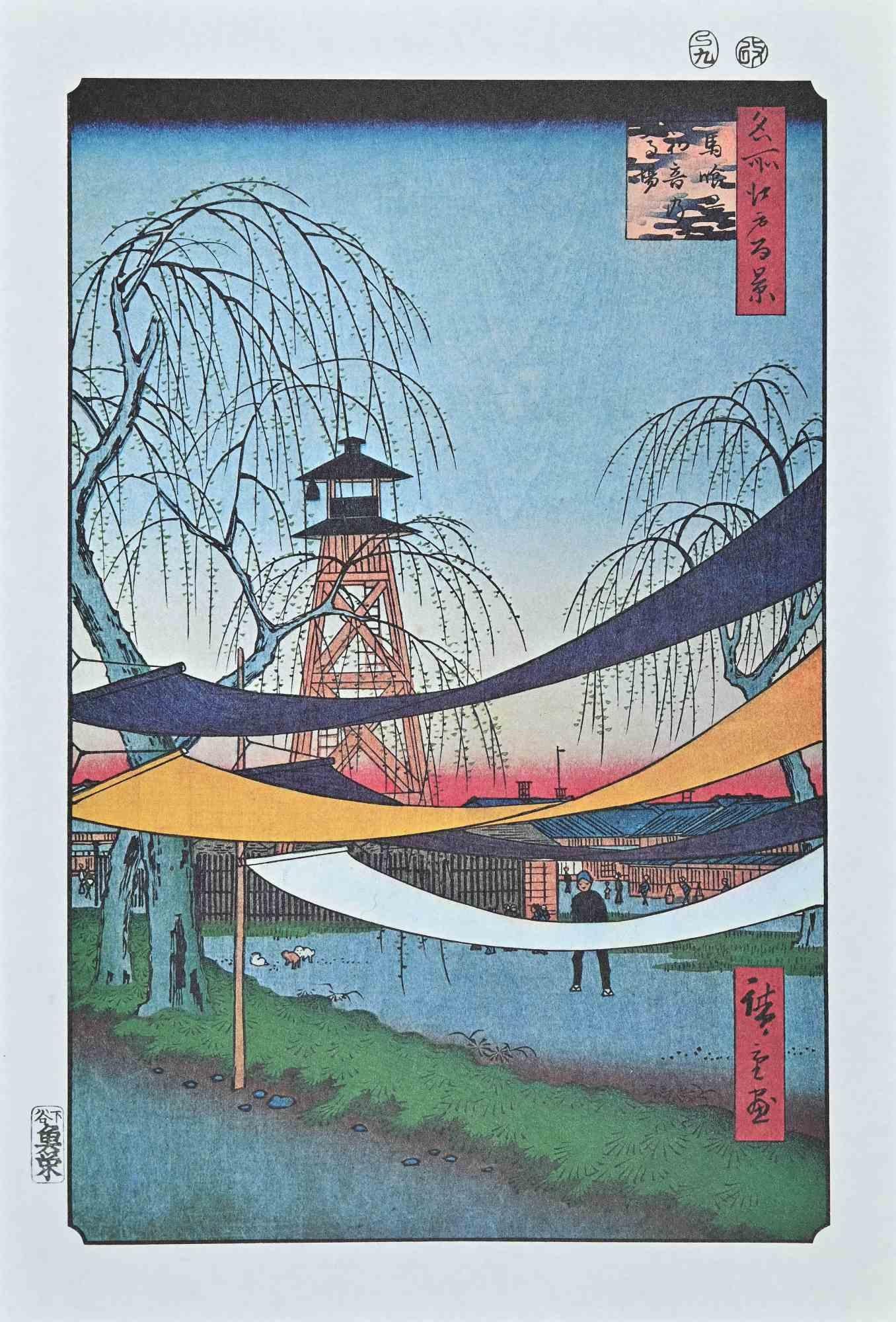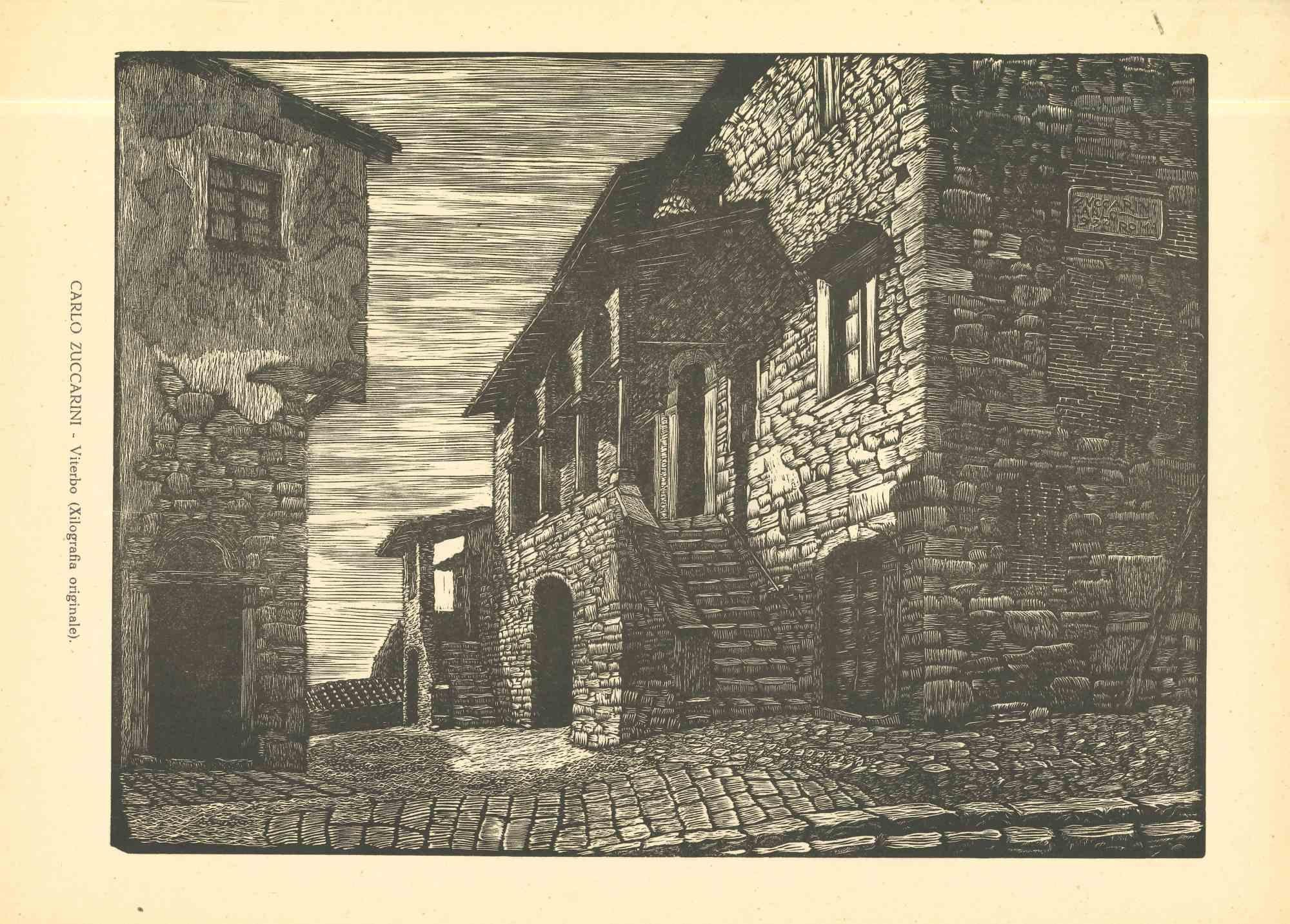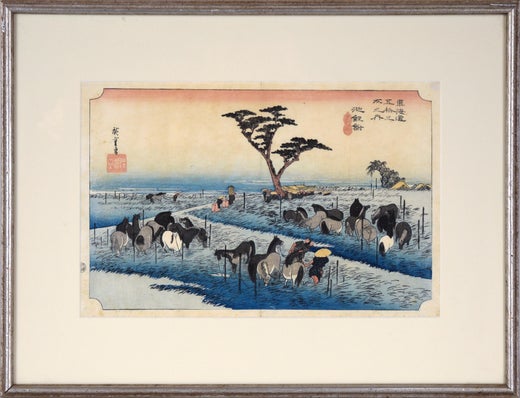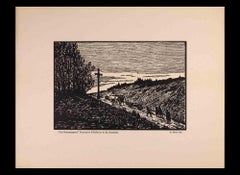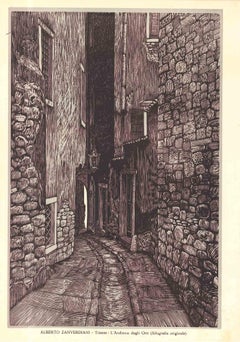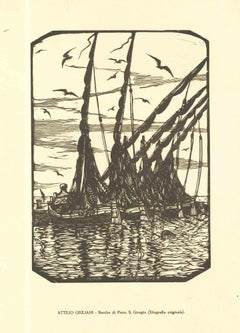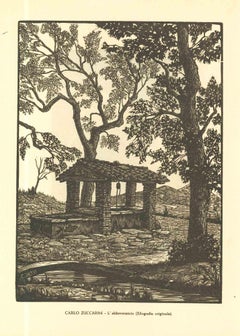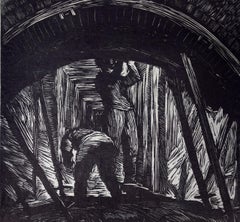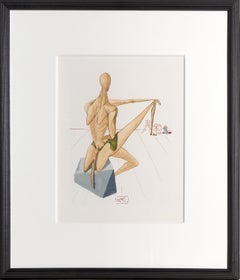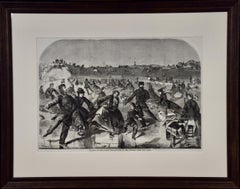View of Zojo-ji Temple in Shiba - by Hiroshige Utagawa - 1850s
View Similar Items
Utagawa Hiroshige (Ando Hiroshige)View of Zojo-ji Temple in Shiba - by Hiroshige Utagawa - 1850s1850s
1850s
About the Item
- Creator:Utagawa Hiroshige (Ando Hiroshige) (1797-1858, Japanese)
- Creation Year:1850s
- Dimensions:Height: 10.04 in (25.5 cm)Width: 14.3 in (36.3 cm)Depth: 0.08 in (2 mm)
- Medium:
- Period:
- Condition:Insurance may be requested by customers as additional service, contact us for more information.
- Gallery Location:Roma, IT
- Reference Number:Seller: M-1150651stDibs: LU65037505252
Utagawa Hiroshige (Ando Hiroshige)
Born in Edo as Tokutaro Ando, Utagawa Hiroshige (also known as Andō Hiroshige) grew up in a minor samurai family. His father belonged to the firefighting force assigned to Edo Castle. It is here that Hiroshige was given his first exposure to art: legend has it that a fellow fireman tutored him in the Kano school of painting, though Hiroshige’s first official teacher was Rinsai.
Though Hiroshige tried to join Utagawa Toyokuni's studio, he was turned away. In 1811, young Hiroshige entered an apprenticeship with the celebrated Utagawa Toyohiro. After only a year, he was bestowed with the artist name Hiroshige. He soon gave up his role in the fire department to focus entirely on painting and print design. During this time he studied painting, intrigued by the Shijo school. Hiroshige’s artistic genius went largely unnoticed until 1832.
In Hiroshige's groundbreaking series of Japanese woodblock prints, The “53 Stations of the Tokaido” (1832–33), he captured the journey along the Tokaido road, the highway connecting Edo to Kyoto, the imperial capital. With the Tokugawa Shogunate relaxing centuries of age-old restrictions on travel, urban populations embraced travel art and Hiroshige became one of the most prominent and successful ukiyo-e artists. He also produced kacho-e (bird-and-flower pictures) to enormous success. In 1858, at the age of 61, he passed away as a result of the Edo cholera epidemic.
Original Hiroshige woodblock prints continue to convey the beauty of Japan and provide insight into the everyday life of its citizens during the Edo period. The appeal of his tender, lyrical landscapes was not restricted to the Japanese audience. Hiroshige’s work had a profound influence on the Impressionists and Post-Impressionists of Europe: Toulouse-Lautrec was fascinated with Hiroshige’s daring diagonal compositions and inventive use of perspective, while Van Gogh literally copied two of Hiroshige's prints from the famous series, “100 Famous Views of Edo” in oil paint.
Find original Utagawa Hiroshige prints and other art for sale on 1stDibs.
(Biography provided by Robert Azensky Fine Art)
More From This Seller
View AllEarly 20th Century Modern Figurative Prints
Woodcut
Early 20th Century Modern Figurative Prints
Woodcut
1920s Modern Figurative Prints
Woodcut
Early 20th Century Modern Figurative Prints
Woodcut
Mid-20th Century Modern Figurative Prints
Woodcut
20th Century Modern Figurative Prints
Woodcut
You May Also Like
1930s Landscape Prints
Woodcut
1960s Surrealist Figurative Prints
Woodcut
1870s American Impressionist Landscape Prints
Engraving, Woodcut
Late 20th Century American Realist Landscape Prints
Woodcut
1950s Modern Figurative Prints
Woodcut, Stencil
1950s American Modern Figurative Prints
Woodcut
